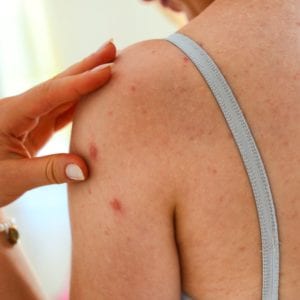Getting a Clear Picture of Skin Cancer
- Posted on: May 15 2020
 Skin cancer has become a prevalent condition in our country, affecting approximately 1 in 5 people today. Seeing that most cases of skin cancer are preventable, we find this statistic unacceptable. Part of our intent at the American Society for Mohs Surgery is to decrease the instances of extensive damage caused by various types of skin cancer. Additionally, we prioritize education for doctors and the average patient. Here, we discuss various questions patients often have about skin cancer and the risks of this disease.
Skin cancer has become a prevalent condition in our country, affecting approximately 1 in 5 people today. Seeing that most cases of skin cancer are preventable, we find this statistic unacceptable. Part of our intent at the American Society for Mohs Surgery is to decrease the instances of extensive damage caused by various types of skin cancer. Additionally, we prioritize education for doctors and the average patient. Here, we discuss various questions patients often have about skin cancer and the risks of this disease.
Skin Cancer May Not Look Like Cancer
The word cancer elicits certain mental images. We’ve all seen the horrors of advanced skin cancer and what it can do to human tissue. But what about early skin cancer? Would we notice the signs easily? Perhaps not. Often, a new cancerous growth looks like nothing more than a waxy pimple-looking bump on the surface of the skin. It may look like a small fleshy growth. Regardless of the pictures we’ve seen of red, crusty, oozing skin cancers, we must remember that early growths won’t look like this. This is important because it is when skin cancer doesn’t look much like skin cancer that treatment can be most effective. If you have a bump or a sore that has persisted for a few weeks, see your dermatologist for a full skin cancer screening.
Skin Cancer Sensations to Know
Many people wonder if a skin cancer lesion will itch. The answer is maybe. Cancerous growths may feel a number of different ways. Some people say their skin feels tingly at times. Some say that a growth hurts. Generally, we say that if a growth looks or feels different than your normal skin, it should be looked at by a dermatologist. Perhaps the most challenging aspect of skin cancer treatment is the lack of early care sought by patients who overlook these subtle signs.
Skin Cancer: All in the Family?
Dermatologists are often asked by patients if they can inherit skin cancer. The answer is no. However, while skin cancer itself is not passed down by our ancestors, the traits that increase risk can be. For example, if your family line consists of very light-skinned, light-haired people, your skin may be more photosensitive and prone to skin cancer development. Knowing the genetic risk of skin cancer can help you increase your chances of avoiding this condition.
We pride ourselves on being an informative resource for doctors and their patients. If you would like more information on membership with the American Society for Mohs Surgery or on our upcoming courses, call (800) 616-2767. If you are looking for a Mohs surgeon in your area, search our online directory.
Posted in: MOHS Surgery, Skin Cancer


